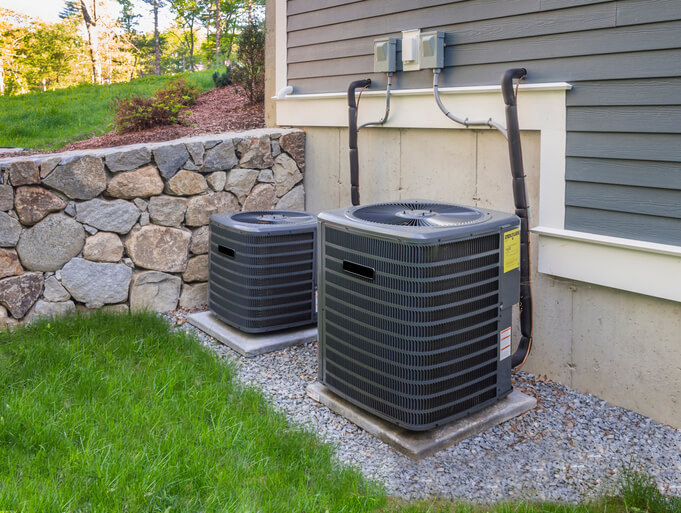Residential HVAC units are important for every home. They help keep your house comfortable all year round. Let’s learn more about these amazing machines.
What is a Residential HVAC Unit?
HVAC stands for Heating, Ventilation, and Air Conditioning. A residential HVAC unit is a system that helps control the temperature and air quality in your home. It keeps you warm in winter and cool in summer.
Components Of A Residential Hvac Unit
An HVAC unit has several parts. Each part plays a vital role. Here are the main components:
- Furnace: Heats the air in your home.
- Air Conditioner: Cools the air in your home.
- Thermostat: Controls the temperature.
- Ventilation: Moves air around your home.
- Ductwork: Channels that carry air to different rooms.
How Does a Residential HVAC Unit Work?
Understanding how an HVAC unit works can be easy. Let’s break it down into simple steps:
Heating Process
- The thermostat senses the room temperature.
- If it’s too cold, it sends a signal to the furnace.
- The furnace heats the air.
- Warm air travels through the ducts to heat your home.
Cooling Process
- The thermostat senses the room temperature.
- If it’s too hot, it sends a signal to the air conditioner.
- The air conditioner cools the air.
- Cool air travels through the ducts to cool your home.
Ventilation Process
- The ventilation system brings fresh air into your home.
- It removes stale air from inside your home.
- It keeps the air quality high and reduces moisture.

Credit: acmasters.com
Benefits of a Residential HVAC Unit
Having an HVAC unit in your home has many benefits. Here are some of them:
Comfort
HVAC units keep your home at a comfortable temperature. You can enjoy a warm home in winter and a cool home in summer.
Air Quality
HVAC units improve the air quality in your home. They remove dust, allergens, and other particles. This helps you breathe easier.
Energy Efficiency
Modern HVAC units are energy efficient. They use less energy to heat and cool your home. This can save you money on your energy bills.
Tips for Maintaining Your Residential HVAC Unit
Maintaining your HVAC unit is very important. It keeps it running smoothly and extends its life. Here are some tips to help you:
Regular Inspections
Have a professional inspect your HVAC unit regularly. They can check for any issues and fix them before they become big problems.
Change Filters
Change the air filters in your HVAC unit regularly. This keeps the air clean and helps the unit run more efficiently.
Clean Ducts
Clean the ducts in your HVAC system. This helps air flow better and keeps your home cleaner.
Check Thermostat
Make sure your thermostat is working properly. A faulty thermostat can cause your HVAC unit to run inefficiently.
Keep The Area Clean
Keep the area around your HVAC unit clean. Remove any debris or clutter that could block airflow.
Common Problems with Residential HVAC Units
Sometimes, HVAC units can have problems. Here are some common issues and how to fix them:
No Heat Or Cool Air
If your HVAC unit is not producing heat or cool air, check the thermostat. Make sure it’s set to the correct temperature. If that doesn’t help, call a professional for help.
Strange Noises
If your HVAC unit is making strange noises, it could be a sign of a problem. Check for loose parts or debris in the system. If the noise continues, call a professional for help.
Poor Airflow
If the airflow in your home is weak, check the air filters. They may be dirty and need to be replaced. If that doesn’t help, check the ducts for any blockages.
High Energy Bills
If your energy bills are higher than usual, your HVAC unit may be running inefficiently. Check for any issues and have a professional inspect the unit.
Choosing the Right Residential HVAC Unit
When choosing an HVAC unit for your home, there are several factors to consider. Here are some tips to help you make the right choice:
Size Of Your Home
Choose an HVAC unit that is the right size for your home. A unit that is too small won’t heat or cool your home properly. A unit that is too large will use more energy than necessary.
Energy Efficiency
Look for an HVAC unit that is energy efficient. This will save you money on your energy bills and help the environment.
Features
Consider the features of the HVAC unit. Some units have advanced features like programmable thermostats and air purifiers. Choose a unit with the features that are important to you.
Budget
Consider your budget when choosing an HVAC unit. There are units available at different price points. Choose one that fits your budget and meets your needs.

Credit: www.theseverngroup.com
Frequently Asked Questions
What Is A Residential Hvac Unit?
A residential HVAC unit controls heating, cooling, and air quality in homes.
How Does An Hvac System Work?
It regulates indoor temperature using heating, ventilation, and air conditioning components.
What Are Hvac Unit Types?
Common types include central air conditioners, heat pumps, and ductless mini-splits.
How Often Should Hvac Be Serviced?
Service your HVAC unit biannually for optimal performance.
Conclusion
Residential HVAC units are essential for keeping your home comfortable. They help control the temperature and improve air quality. By following the tips in this article, you can keep your HVAC unit running smoothly. Remember to choose the right unit for your home and maintain it regularly. This will ensure that you and your family stay comfortable all year round.
